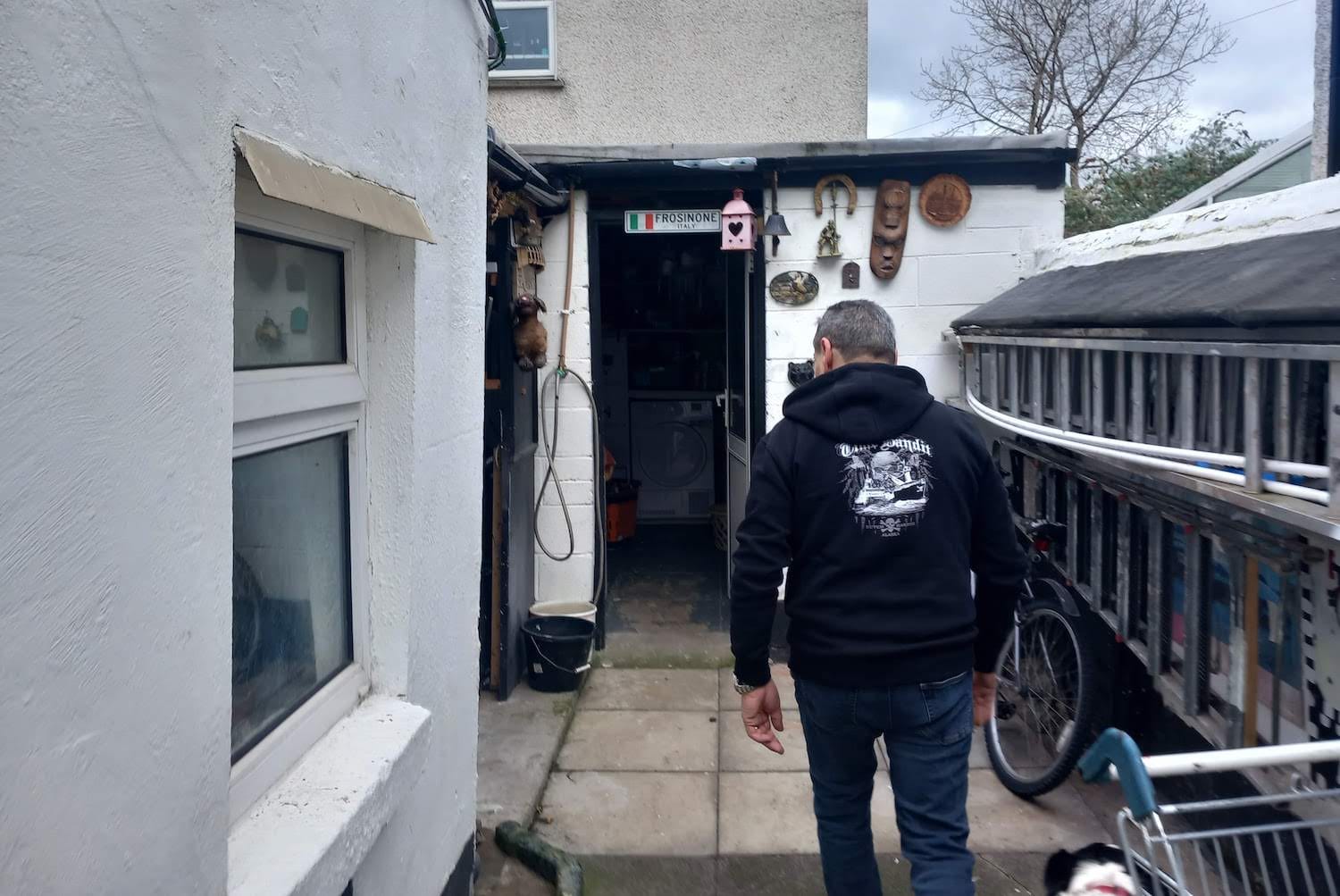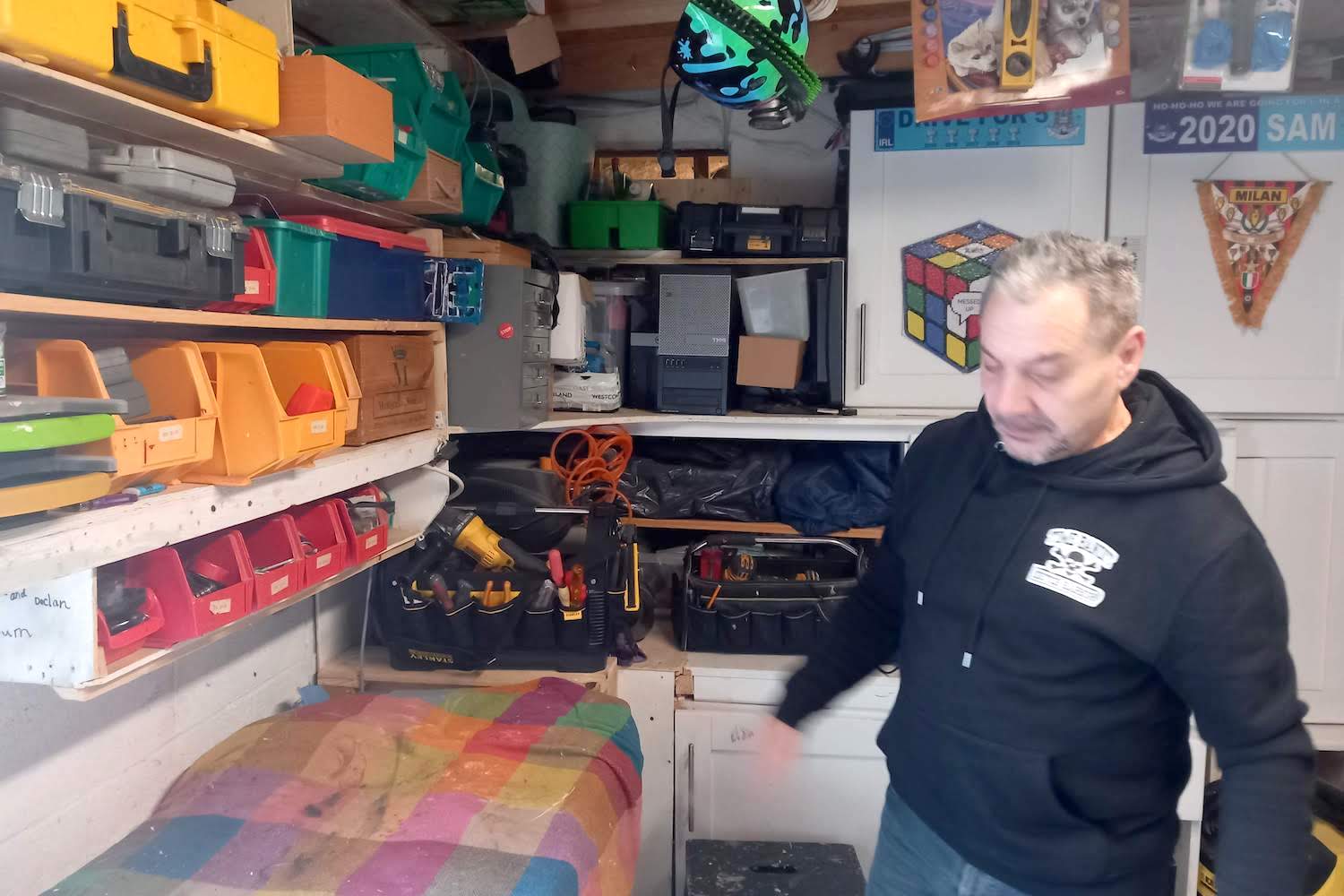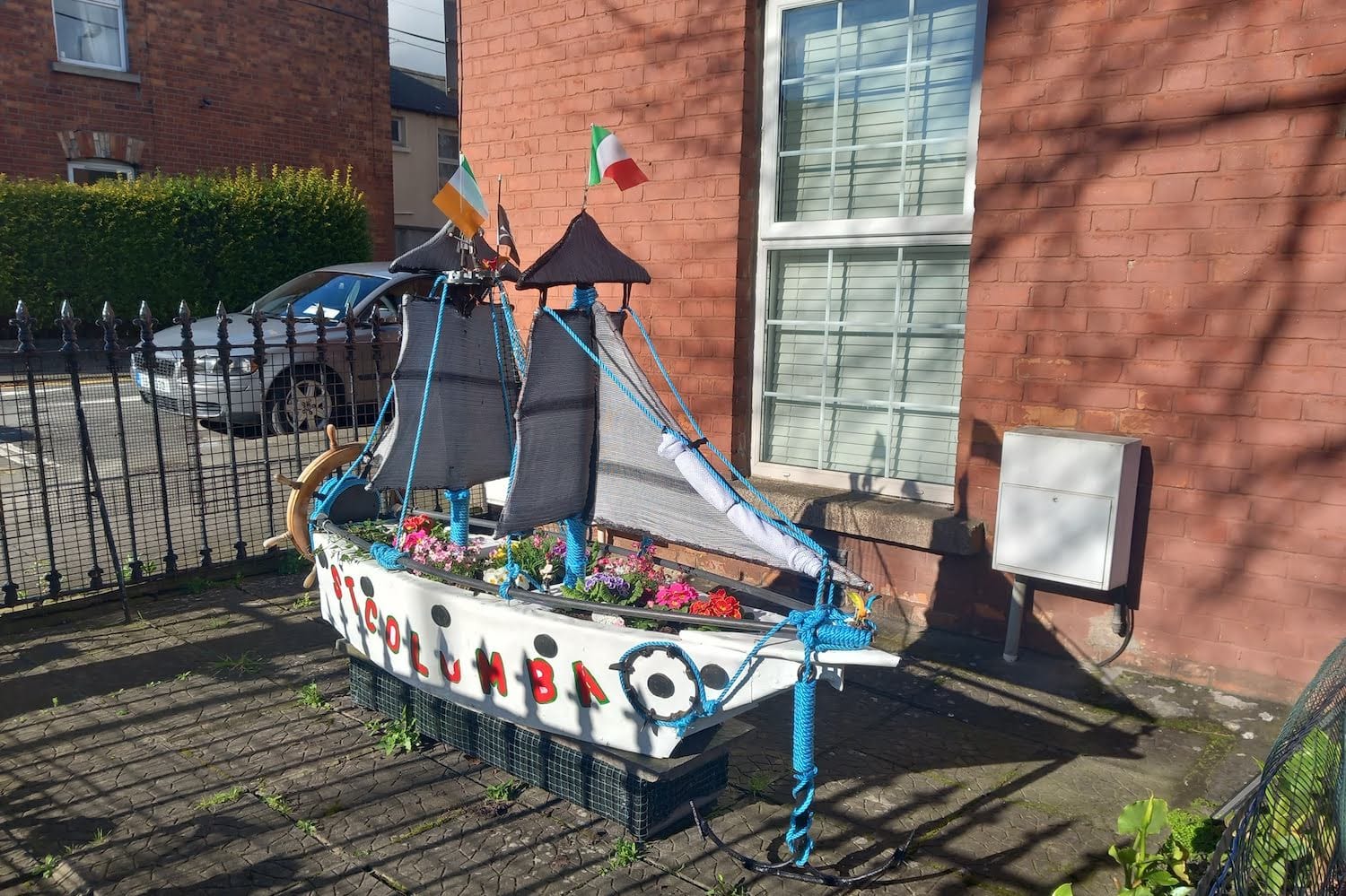What’s the best way to tell area residents about plans for a new asylum shelter nearby?
The government should tell communities directly about plans for new asylum shelters, some activists and politicians say.
Big enough for small children to play pirates in, but filled instead with flowers, they sit in the front gardens of a terrace of brick houses. Here’s their story.

As people walking down the footpath in North Circular Road in Phibsboro pass the three boats, nearly every one turns to have a look, and some, a little smile.
The boats – big enough for small children to play pirates in, but filled instead with flowers – sit in the front gardens of a terrace of two-storey brick houses.
They are called the St Columba, St Pedro and Santa Maria. Each is flying the Irish and Italian flags.
Answering the door of one of the boat houses last Wednesday afternoon, Maria Capocci smiles when asked about them.
Her father built them, starting during the Covid lockdowns, she says. “Slowly but surely, one sailed out the door after the other.”
The next morning about 11am, she and her mother and father sit around their kitchen table, just inside the front window.
Maria Capocci is at the end of the table nearest the window. Her mother, Nora, sips a mug of tea on one side.
Her father, holding a tiny cup of espresso, sits at the other end. He introduces himself as Peter.
Nora laughs. “Pedro is what you’re always called,” she says. “He’s giving the Irish version.”
Together, they begin to tell the story of the boats, which quickly turns into the story of their family.
Pedro is from a village called Settefrati in the province of Frosinone in the Lazio region – right smack in the middle of Italy.
“Back in my country we used to be farmers, we work on the farm, my mother, my father, us when we used to be kids,” Pedro says.
When he was a kid, his family began moving, one by one, to Ireland, Pedro says. He made the journey himself in 1969, when he was 12, he says.
“It was poverty, basically, that drove them,” Nora says.
When he arrived, he worked with his family in a chipper called Capri, near the Bull Wall, he says. They were up early, and worked late.
“My brother-in-law used to bring me to get fish, we used to go to the fish market,” he says. “And sometimes we used to go to Howth, and the boats coming in, we used to get fish from them.”


The years passed, he grew up, and “Then I met this woman from Achill.” It was Nora.
“I moved into a residence his family owned,” Nora says. “That’s where I met him, that’s when the love story started,” she laughs.
They went to Achill when they got engaged, and Pedro fell in love with the island too.
“We used to go down to Achill every weekend,” Pedro says.
“The sea was our backyard, it was our play area really,” Nora says.
Pedro says he loved boating, fishing, shooting.
“That’s where the love of boats came from for Peter,” Nora says.
Years on, Nora’s uncle was getting older, and couldn’t be left on his own, so they moved in with him in his house in North Circular Road, Nora says.
He had been a fisherman, and the house, where they still live, was filled with maritime memorabilia.
After 25 years working in chippers with his family and some more years working as a builder, Pedro retired not long before Covid hit Ireland in 2020.
And then all of a sudden, after all those years of 16-hour days and being busy all the time, he was at a bit of a loose end.
“So I decided to use this stuff because I always recycle stuff,” Pedro says.
“My uncle passed away in 2016. So there was all this stuff that has to be recycled, that’s what Peter’s on about,” Nora says.
“He’s the man to recycle something,” Maria says. “One man’s junk is another man’s treasure. He’s the treasure man.”
The idea to liven up the front gardens of the houses came from Nora and Pedro’s son Peter, who, during the Covid lockdowns, put a sign out front that he’d write things on to give people a bit of a laugh.
“He’d put stuff like, ‘Is your ma vaccinated? We’re going for a pint,’” says Maria, laughing.
“The amount of people that got enjoyment out of it,” Nora says. “That was really – that was the start of it.”
Pedro spent hours in the shed behind the house, cobbling together bits that Nora’s uncle had collected over the years – and other pieces lying around – into boats.
“That one there,” he says, pointing out the window, “I made with a trampoline.”
“My kids’ trampoline,” Maria says. “The kids had outgrown it and it was getting quite old and rickety, and I was like, ‘I’ll bring that to the recycling centre in Ringsend’ and he was like, ‘No no just leave it here.’”
“The broken wheelie bin made the other one,” Nora says. “He started calling them after his children.”

“Columba came in later – if you’re an Italian inventor you have to put Columbus on a boat,” Maria says, laughing.
“Columba is like white bird. White pigeon,” Pedro says.
“A dove, Dad, a dove,” Maria says.
“Like, you know when someone dies they let them go. Like, rest in peace. So that’s the name of the boat, La Columba. I put St Columba, but it should be La Columba,” he says.
“San Pedro, now that’s a laundry basket,” Pedro says.
All three Capoccis laugh. Which kid got the trampoline, the bin, the laundry basket?
“I got, ah, I want to say the bin,” Maria says, and they all laugh again.
Pedro has set flowers in the boats, which by summer will hopefully be more colourful, Nora says.
The family can watch people’s reactions to them from the kitchen table, via CCTV.
“The amount of people that stop and they talk and things,” Nora says, happily.
Get our latest headlines in one of them, and recommendations for things to do in Dublin in the other.